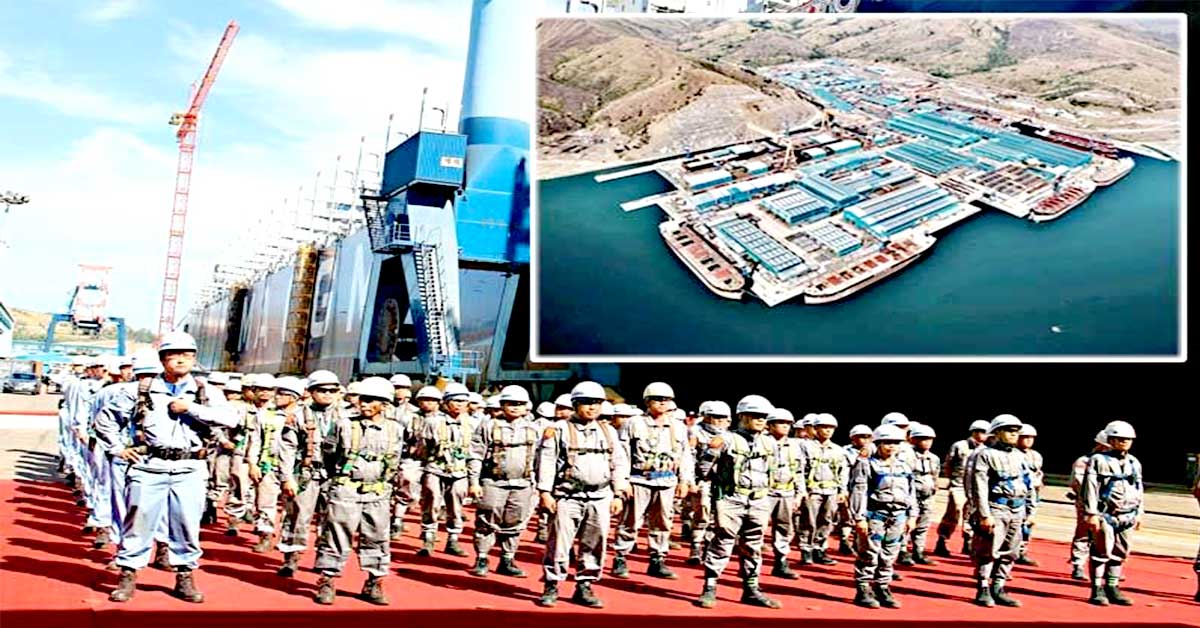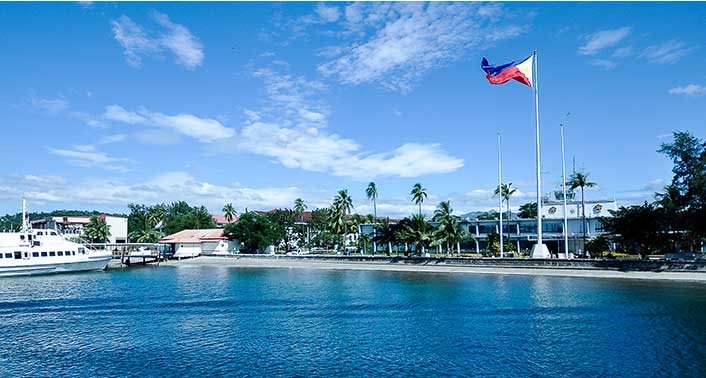Philippines, Japan sign $1.54-billion loan deal on North-South Railway
Posted 6 years ago

|
RAILWAY DEAL. Philippine Finance Secretary Carlos Dominguez III and Japan International Cooperation Agency Director General Shigenori Ogawa sign the loan agreement for the North-South Commuter Railway. Photo from the Department of Transportation
MANILA, Philippines – The governments of Philippines and Japan signed an P80.47-billion ($1.54-billion) loan agreement on the 109-kilometer North-South Commuter Railway (NSCR) extension project, the biggest project so far under the infrastructure program “Build, Build, Build.”
On Monday, January 21, Finance Secretary Carlos Dominguez III and Japan International Cooperation Agency (JICA) Director General Shigenori Ogawa signed the first tranche of the multibillion-peso loan deal at the Department of Finance.
The total cost of the project amounted to P628.42 billion ($12.03 billion). JICA and the Asian Development Bank will finance the total loan financing requirement at P488 billion ($9.34 billion).
The signing was witnessed by Public Works Secretary Mark Villar, Railways Undersecretary Timothy John Batan, and embassy of Japan Minister Atsushi Kuwabara.
Dominguez said on Monday that the economic benefits of improved mobility once the railway service is completed “will translate into many times over the cost of the project.”
“This commuter rail service ought to have been built many years ago. This might have spared our harried commuters all the grief they bear now,” Dominguez said.
“But previous governments did not have the fiscal space, did not have the enthusiasm of our international development partners and, most important, did not have the unyielding political will we benefit from today,” he added.
Dominguez said that the NSCR project has the “fastest loan processing time” in the history of the Philippines-Japan cooperation.
In November 2018, the National Economic and Development Authority (NEDA) Board Investment Coordination Committee-Cabinet Committee (ICC-CabCom) approved the changes in scope of the 147-kilometer railway system, which included a 76% increase from the previous total costing estimate of P440.88 billion.
The increase in costing was due to a shift in engineering design, increase in the number of trains, and added costs that will cover resettlement activities for the 12,901 informal settler families.
The loan has a maturity period of 40 years, with a 12-year grace period. Non-consulting services under the agreement have an interest rate of 10 basis points per annum, and 1 basis point per annum for consulting services.
This is the second railway loan deal with Japan under the Duterte administration. JICA will also be financing the P18-billion Metro Rail Transit Line 3 (MRT3) rehabilitation.
Seamless commute
The railway will “seamlessly” integrate the Philippine National Railways (PNR) lines from Central Luzon to Calabarzon:
The 38-kilometer PNR Clark 1 from Tutuban, Manila to Malolos, Bulacan
The 58-kilometer PNR Clark 2 from Malolos, Bulacan to Clark International Airport, Pampanga
The 56-kilometer PNR Calamba running from Solis Street in Tondo, Manila to Calamba, Laguna
The extension project covers PNR Clark 2 and PNR Calamba lines. Previously, the government had inked a $2.37-billion loan from Japan for the PNR Clark 1 deal in November 2015.
The railway system will also link existing railway lines – Light Rail Transit (LRT) lines 1 and 2, the MRT3, and the upcoming Metro Manila Subway.
Batan said that the NSCR “is more than just another railway,” with less travel time from the provinces to Metro Manila.
“The NSCR is more than just another railway project, as it promises to deliver a new way of life to the millions of Filipinos that it will benefit,” Batan said.
The Department of Transportation (DOTr) expects to have a ridership of 340,000 passengers a day when it partially operates in 2022. By 2023, DOTr expects a ridership of 550,000 passengers when it becomes fully operational.
Initially, the NSCR project was planned to be under a public-private partnership under the Aquino government.
The Duterte administration had called off the auction in 2016.
Source: rappler.com










































Loading Comment